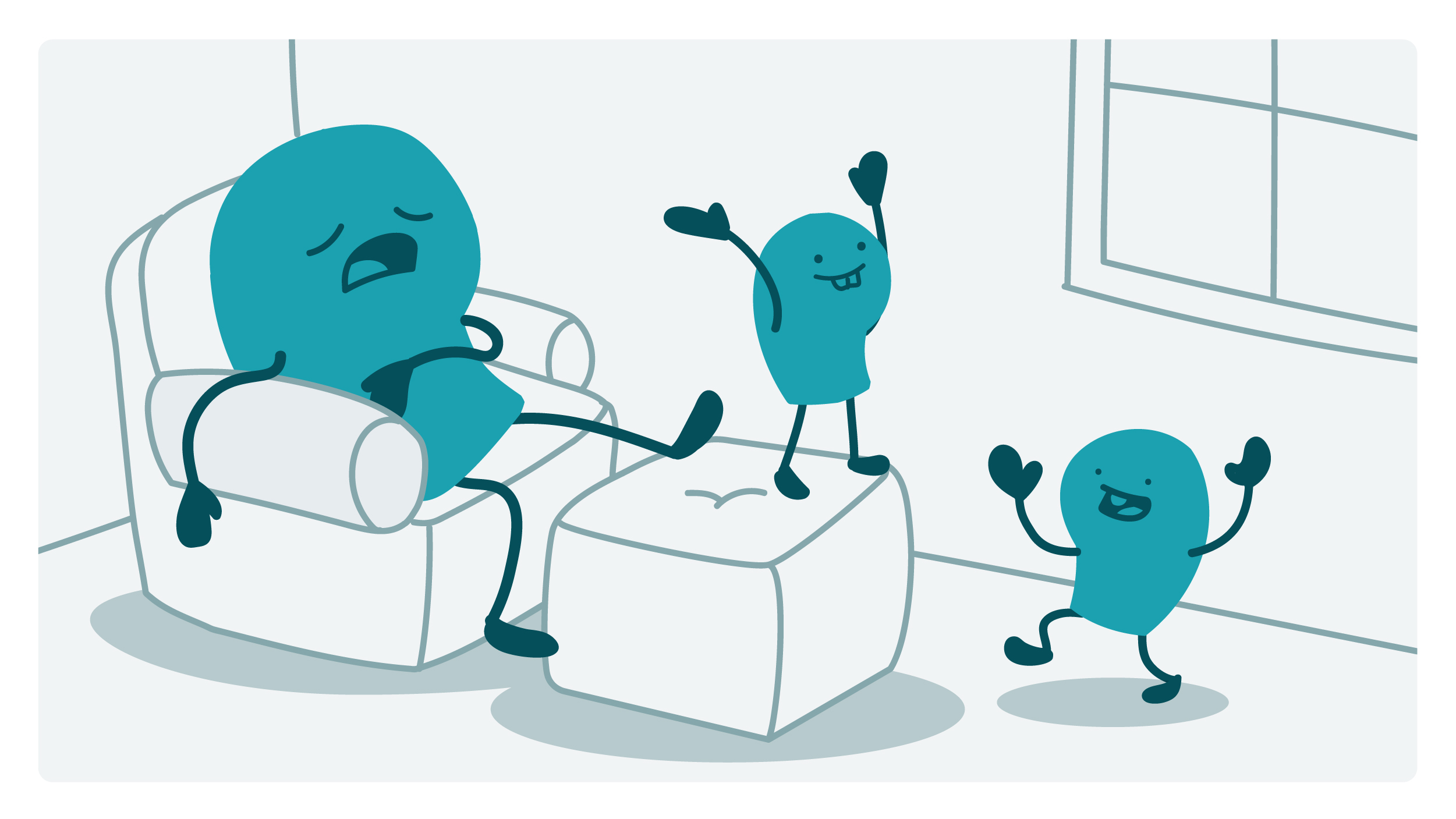 It’s that time — kids are headed back to school, and parents are breathing an end-of-summer sigh of relief. And for many parents, that sigh is especially deep this year. In a recent study, 7 in 10 working parents reported being burned out. And we’re not talking about feeling tired at the end of a long day. We’re talking about a constant state of complete exhaustion, of feeling like you have nothing left to give — and yet, you have no choice but to struggle on.
It’s that time — kids are headed back to school, and parents are breathing an end-of-summer sigh of relief. And for many parents, that sigh is especially deep this year. In a recent study, 7 in 10 working parents reported being burned out. And we’re not talking about feeling tired at the end of a long day. We’re talking about a constant state of complete exhaustion, of feeling like you have nothing left to give — and yet, you have no choice but to struggle on.
Unsurprisingly, one of the main reasons participants named for their burnout was the heightened stress and demands of parenting during the pandemic. Almost overnight, many parents had to become remote employees, teachers, and full-time playmates for little people — while social support systems fell away.
But that’s not the whole story. COVID uncovered, rather than created, an uncomfortable reality: Too often, raising kids in the U.S. means raising kids without a safety net. The U.S. offers very little structural support to parents — you know, affordable childcare and early education programs, paid family leave, and financial support that goes beyond saving a few bucks on your taxes. Impossible, you say? Other countries know better.
So what does this mean for health communicators? Well, it’s a great reminder to communicate with empathy. Parents are a pretty standard health comm audience, so there’s a good chance you’ll work on something with them in mind. When you do, remember that things are capital-H hard right now for many parents — and be really intentional about the framing and words you choose for your health messages. Here are some tips.
Explicitly acknowledge what parents may be dealing with. Sprinkling some real talk about how difficult things are into your materials can make a big difference. It helps set an empathetic tone right off the bat, which is key to connecting with your audience. When it makes sense, add that context to steps you want people to take — try something like “We know you’ve got a lot on your plate right now…” Reflecting parents’ current reality in our health materials allows them to see themselves in our content — and that makes our communications more effective.
Be extra careful not to place blame or imply criticism. Being a parent is hard under the best circumstances, and parent guilt is real. So watch out for sneaky implications of blame or criticism directed at parents. Writing about breastfeeding? Drop the “Breastfeeding is the best thing you can do to help your baby thrive” kind of messages. Breastfeeding-related decisions are extremely personal, and sometimes — due to medical reasons, lack of support, or a million other things — they aren’t “decisions” at all. Sure, it’s helpful to explain why experts recommend breastfeeding, but it’s just as important for parents to think about what’s right for their family. Chances are, they’re already feeling bad about something — and, as it turns out, guilt and shame aren’t particularly effective motivators. (Plus no one likes a breastfeeding bully.)
Help parents set manageable, realistic goals. Often, our job is to share evidence-based public health guidance. But we can’t expect parents to follow all the guidelines all the time — and now’s a great time to make sure that message is coming through loud and clear. When you’re providing health advice, focus on small, specific action steps (hello, self-efficacy). Instead of “Try to fill most of your child’s plate with fruits and vegetables each day,” try things like “Keep easy-to-grab fruits and vegetables (like carrot sticks) on hand for snacks.”
Connect parents with all the resources. As noted above, we’ve got some work to do when it comes to systemic support for parents. But be sure to point folks to resources that do exist — like these parenting mental health resources. If you’re writing for parents in a specific geographic community, do your homework and research local resources to share — like support groups for single parents, orgs offering affordable childcare, and even local public health departments. And while we’re at it, we’ll take this opportunity to remind you to remind parents that asking for help is okay — and often, a really good idea! And encourage parents to talk with other parents — sometimes just knowing that other people are in the same boat can be a game changer.
The bottom line: It’s been a tough few years, and many parents are struggling. So ground your health materials for parents in empathy — and offer encouraging, actionable, and realistic guidance.
Browse recent posts